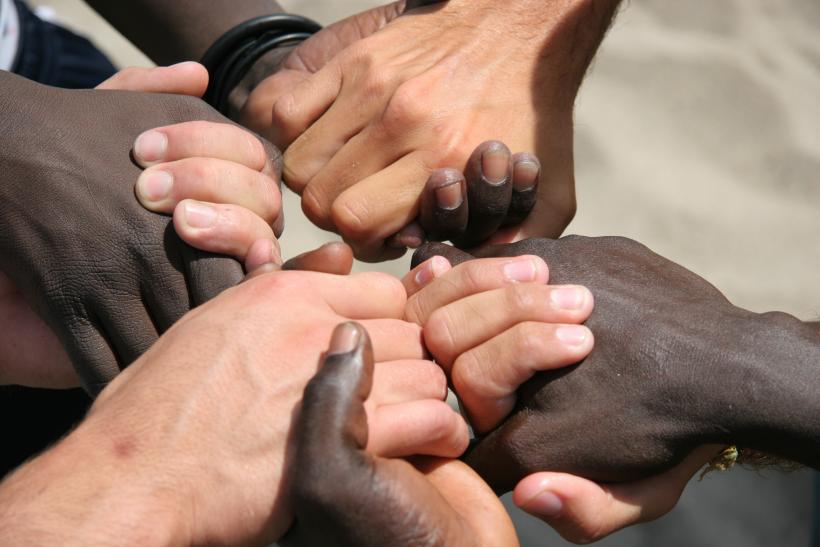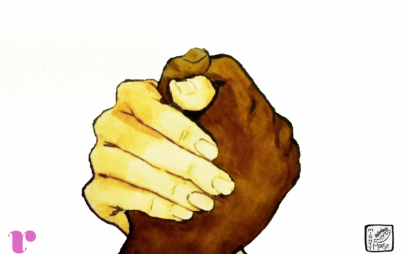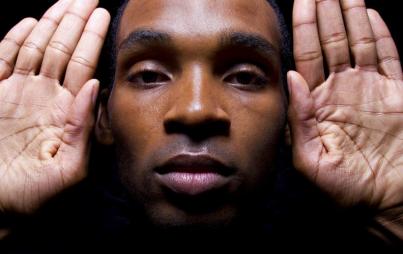
Thinkstock
The anti-Semitic backlash I faced could be seen simply as an expression of anti-black racism—a convenient way for racists who hate black people to hate me too.
In both the news and public discussions, it often seems like the relationship between Jewish communities and black communities in the U.S.—especially—is defined and dominated by black Anti-Semitism. Nation of Islam leader Louis Farrakhan has made anti-Semitic remarks about Jews that have gotten a lot of press over the years, and Jesse Jackson's use of the term "Hymie" in 1984 touched off a media firestorm which helped scuttle his campaign and still resonates today. More recently, black South African comedian Trevor Noah has faced criticism from both the left and right for his anti-Semitic tweets.
Interestingly enough, Noah actually has Jewish heritage himself—a fact not much emphasized in media accounts. As this indicates, the narrative about black people and anti-Semitism is often more complicated than references to Louis Farrakhan make it out to be. I was reminded of this last week, when an article I wrote was targeted by neo-Nazis.
The piece was about how indie music is in part defined by whiteness, and how that makes it hard to recognize black performers as indie musicians. I wrote it for The New Republic—and the comments section (now closed) soon filled up with people declaring that I was discriminating against white people. I've written articles about race before, so I was expecting that.
What was a surprise, however, was that a number of commenters expressed outright, unabashed anti-Semitism. "Berlatsky is engaging in criminal behavior all too typical of Jews: He is denying the right of white Americans to be ourselves," one commenter declares. Another ranted, "It appears that your motivation to make these arguments is one of resentment and rage. A jew starting arguments between blacks and whites due to issues of not fitting in to gentile society. This behavior breeds antisemitism."
Obviously, these people hate Jews. But it's interesting how they hate Jews. Specifically, their anti-Semitism here seems couched in, and dependent upon, anti-black racism. I have a recognizably Jewish name no matter what I write about. Anti-Semitism was triggered on this article, in particular, because I was writing about, and arguing against, racism. More, the anti-Semitism of these commenters is framed in terms of anti-black racism. Jews, for them, are evil because they question white supremacy. The justification of anti-Semitism is Jewish anti-racism.
And wouldn't you know it, this line of thinking isn't restricted just to comments threads. The Daily Stormer, an online neo-Nazi site, uses the same rhetoric, declaring that "the Jewish 'anti-racist' movement is indeed all about hating Whites and nothing else." The Stormer insists that it's always Jews writing anti-racists articles, and that: "All of these things aren’t a coincidence, White man. The Jewish parasite is a hivemind, and it’s a hivemind that is absolutely determined to destroy Whites (the only race intelligent enough to pose a threat to Jewish power) and enslave everyone else under the iron fist of Jewish Bolshevism."
In part, this use of racism to attack white Jews seems like part of the long American tradition of leveraging racism against white people as well as against black people. Ta-Nehisi Coates has pointed out that white American politicians who have pushed for black rights (no matter how ambivalently) have often faced racist slurs.
"Abraham Lincoln's light skin did not save him from a racist political attack," Coates argues, "anymore than it saved him from a racist assassination plot..."
Racism is most often used against black people, but if you're white and align yourself with black people, racists are happy enough to direct racist violence against you too, as witnessed by whites killed during Reconstruction, or during the Civil Rights movement. In this sense, the anti-Semitic backlash I faced could be seen simply as an expression of anti-black racism—a convenient way for racists who hate black people to hate me too,.
Anti-Semitism isn't casual or accidental for the Daily Stormer though. Instead, they seem to be actively trying to use anti-blackness as a way to teach people to racialize Jews. In the U.S. at the moment, white Jews are mostly seen as white; anti-Semitism is not a live force in politics (as I discussed here.)
Anti-black racism, and anti-anti-racism, though, are another story. Lots and lots of people who are not avowed Nazis will take the time to shout at you online if you dare to suggest that racism still exists, in indie rock or anywhere else. So, if you're the Daily Stormer, why not use the racism that you've got and build on that? Associating Jews with anti-racism is an easy way to re-racialize them. If you want America to relearn how to hate white Jews, the quickest way to do that is to associate them with black people—the group that America has been most consistent, and vicious, in hating throughout its history.
The Stomer's insistence that Jews are especially anti-racist is of course nonsense. White Jews have historically, and still, exhibited racism at about the same rate as any other white people—which is to say, they have done so with some frequency. The Stormer is a reminder, though, of the way in which stigmatizing black people is a danger to Jews, black and white. It's easy to single out examples of black anti-Semitism, but if there is a real threat to Jews, it doesn't come from other marginalized groups. Rather, it comes from America's longstanding racial divide.
White Jews are currently considered white, but lines can always be redrawn. As long as racial hatred is central to American politics, there's the potential for that hatred to be directed at Jews—first at black Jews, of course, but at white ones as well. As the Stormer says, Jews do have a stake in anti-racism, or should.
Because as long as black lives don't matter, other lives can be diminished too.






